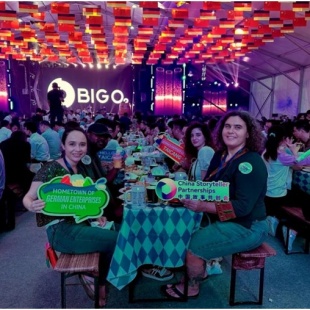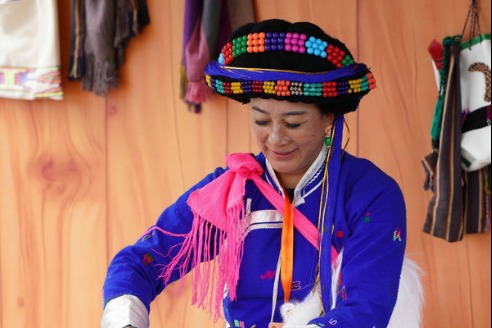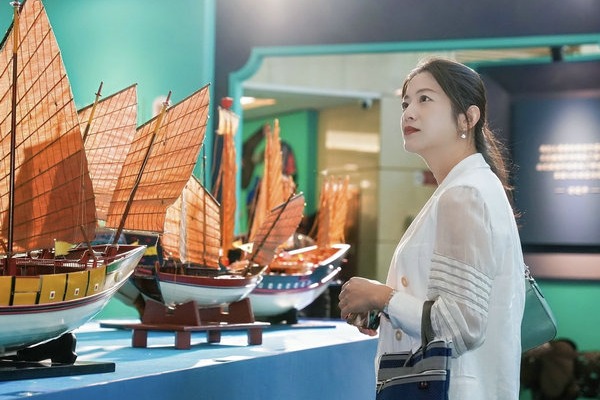Taicang, where beer, culture, business come together

Taicang, a county-level city in East China’s Jiangsu province, is often pictured by people as a serene but prosperous town within one hour’s driving distance from Shanghai. But beyond that, visitors can also find a festival with dynamic and unlimited beer, neighborhoods with a wealth of history, and villages with green development commitment.
To feel its quaint ambience, a group of expats from six countries congregated in the city from Sept 25 to 26 to explore the local culture and business environment, as well as savoring the beer.
Speaking of beer, south of downtown Taicang is Rothenburg Waterfront Street, where the local Oktoberfest is being held from Sept 22 to 30. Now in its 18th edition, the beer extravaganza is one of the key events in the city, with festooned tents, musical bands, a variety of delicacies and beer.
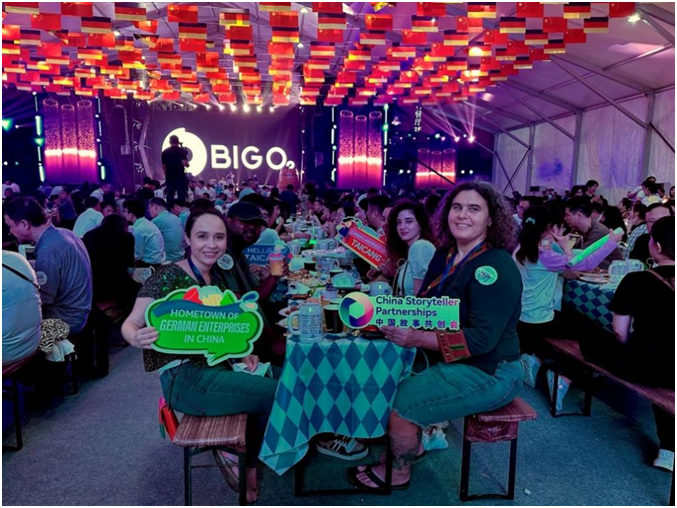
“There was both German food and Chinese food,” said Sabrina Valles, a beer expert and social media influencer from the United States.“And then with the beers, I felt they were of German influence, but to the Chinese taste. For me, I love it when I see beers made with cultural influence.”
The beer to the Chinese taste is, in reality, made by a brewery in Taicang. In addition to offering drinks from renowned brands such as Budweiser, the festival has actually encouraged the local populace to dabble in beer study.
The reason why there’s an Oktoberfest here is straightforward: the city is known as the Hometown of German Enterprises in China. Hundreds of German businesses have taken root here, including suppliers of vehicle brands like Jaguar and Volkswagen. Hence the Oktoberfest symbolizes an aspiration of connection to the wilder world.
The quest for connection is hardly new-found. Chinese people in the Ming Dynasty (1368-1644) started from Taicang to venture into the outside world, sailing fleet to countries in Southeast Asia, the Middle East and East Africa.
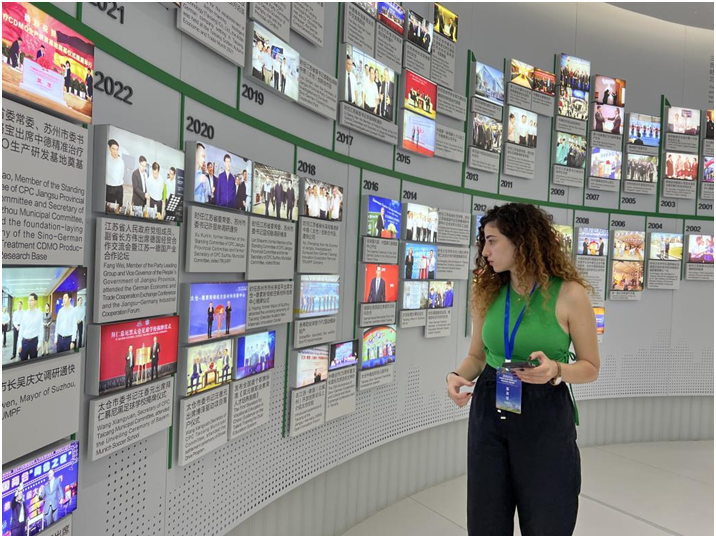
Throughout history, Taicang has been seeking connection and cooperation with other nations and cultures. Today, it has become the intersection between China and Germany, a powerhouse in the national economy.
The city also focuses on the continuity of its artistic past. In the Jiangnan Bamboo Musical Instrument Museum, the international group drowned in the melody played by people both young and old with a kit of traditional Chinese musical instruments including the Chinese zither, pipa and so on.
“I really liked the performance and I appreciate the fact that there were very young people actually playing this instrument, and how good they were playing,” said AmbraSchilliro, a journalist for Rolling Stone stationed in China.
Walking alongside the Liuhe River, a spirit of celebration can be felt in the air. The music fades away asresidents and tourists stroll along the street, but Taicang’s standing as a crossroad for merriment, cooperation and development endures.


